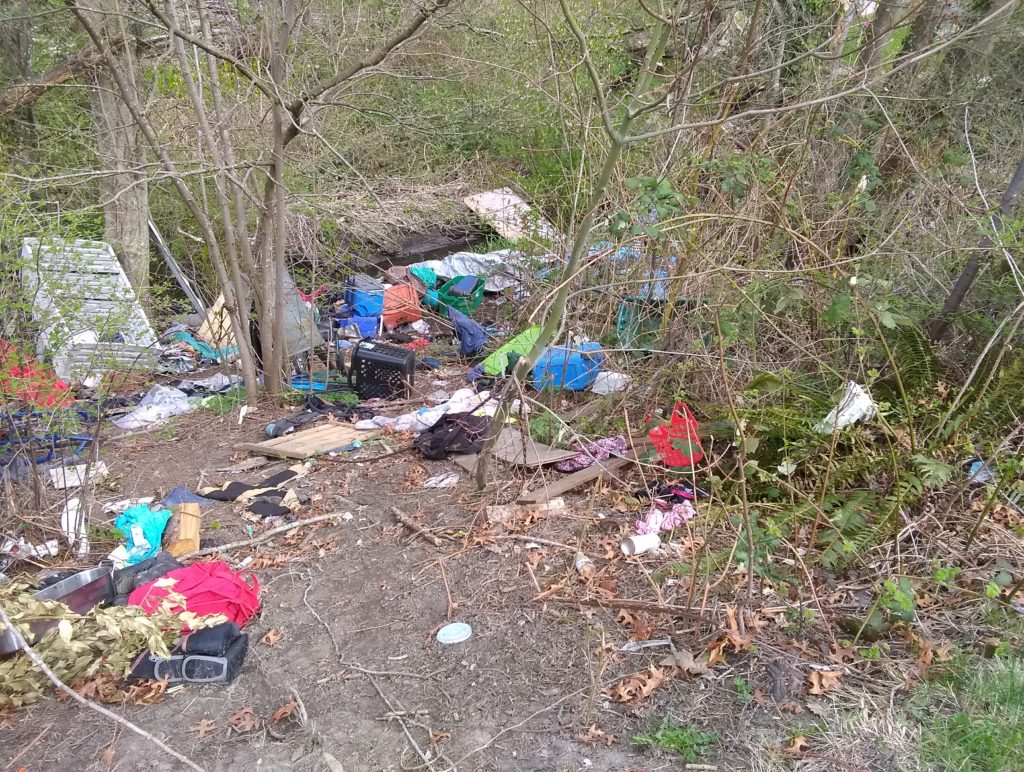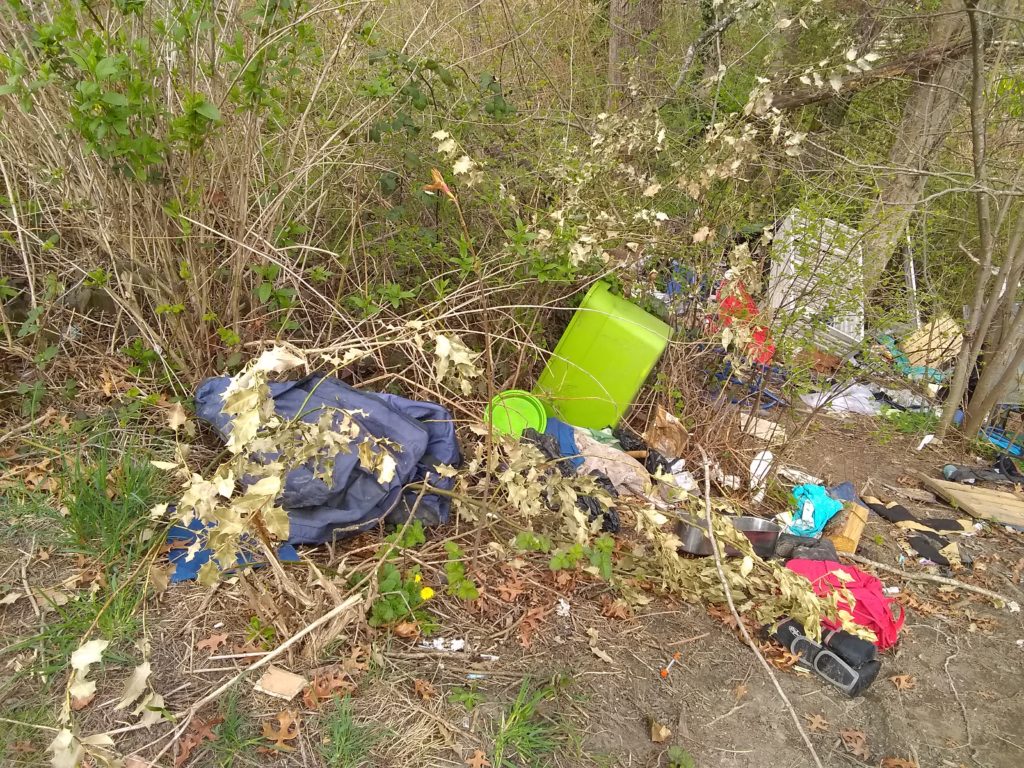by Jeff Laufle
It’s a tricky line to walk, between compassion for our fellow human beings and protecting our other interests. Social issues were not on my radar as a facet of TCA when I joined. Not that I don’t carry the principle of humanitarianism around with me, but TCA first and foremost sees itself as an environmental organization. Still, life’s paths take us many places we never envisioned.


TCA’s intersection with social issues has taken form as part of our involvement and voice concerning homeless camps in Seattle’s parks and green spaces. We’ve provided several written and verbal communications to Seattle City government stating our concerns. Our circle of contacts among other community interests is widening to address specific situations of homeless camping.
A healthy watershed and green spaces benefit not only wildlife, but also the people who live here. These public assets provide habitat, as well as opportunities for scientific research, quiet forest walks, and respite from the noise of city life. They should be protected and enhanced for the entire community to enjoy and not diminished by anyone. We’ve worked hard for decades, in partnership with local governments and other nonprofits, to preserve and protect environmental functions in our watershed. And of course we want to see our work mean something lasting. So it’s difficult to sit back and watch as camp debris, human waste and hypodermic needles accumulate along the creek; and as vegetation is destroyed and as soil is eroded. More than that, it’s hard to countenance antisocial behavior and disturbances, and to know that citizens and neighbors are feeling discouraged from entering those areas.
But we know that everyone needs somewhere to live, and we do believe in everyone’s right to safe, clean, affordable housing. We understand that considerable City and County resources are being devoted to addressing homelessness and providing low-income housing, and that it won’t all be there overnight. We support due process, and don’t believe in simply turning people from one spot to another. And perhaps at the crux of that matter, we know that many homeless people, for their own reasons, will choose not to avail themselves of the resources offered by local governments, and will continue to make their beds outdoors.
So we find ourselves caught in the middle, trying to develop win-win solutions. It’s unfamiliar and uncomfortable territory. Simply noting that camping and litter in Seattle parks are prohibited is not enough. Not only must we must think in terms of environmental and, yes, public-health protections, we must also add social-service terms to our vocabularies and thought processes as we work with local governments for credible outcomes. Really, we want social, economic and environmental sustainability as the outcome of our actions.
In a former life as a block-watch captain and co-chairman of a citizen anti-crime council in West Seattle, I learned the necessity of slow, hard work and social supports to head off the issues that we faced. Those issues were the consequences of dysfunctional family and neighborhood circumstances, and there was no magic wand to wish them away. Simply locking up the bad guys wasn’t going to solve things in the long run. Similarly, we need solutions for homeless campers that benefit them, but that also allow us to maintain the green-space values we espouse.
So here’s a new chapter in the same book for me. I hope my experience will help me now, because once again, we have no easy answers. I hope all TCA members will apply informed thinking along with humanitarian and environmental values as we navigate this path; indeed, we have no choice.
Jeff Laufle
President

